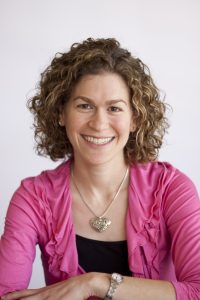To tell the story of Angelina Drews’ journey into health coaching is to tell a story about personal challenges and the woman who overcame them.
Like so many others – family health concerns and work upsets moved her life course in directions she hadn’t originally planned.
Angelina loved being a busy nurse on call 24/7 for most of her career. She has been fortunate to work at High Point Regional Hospital serving in different roles over the years as a Trauma Coordinator, and later as an Infection Prevention Manager. Then, an Aunt became ill. Without a blink, Angelina’s deep caring nature and family values kicked in and she struggled to balance her full-time work and with full-time care of her aunt’s worsening condition. However, in June 2016, Angelina resigned her position because she realized she could do both, but not do both with her full attention and passion at the same time. Within months, Angelina’s aunt passed away.
Angelina began looking at her employment options and considered Health Coaching because of its holistic focus. Additionally she felt that through Health coaching there she would have the opportunity to truly help a client make impactful, lifelong changes. She completed the UNCG 3-day training course in September 2016 and began her buddy coaching right away.
And again, life changed course.
Just as Angelina was gaining traction, she ruptured a disk in her back, delaying the certification process until June of 2017. During the buddy coaching process, she had to learn about switching “hats”. She noticed she was “shoulding” during buddy coaching, and instead of guiding as a coach, she was telling them what they “should” do (as nurses are accustomed to doing in patient education). Once she realized this, she learned to better “work the process,” as she says.
After healing and recovery, Angelina became certified in June 2017. Initially, Angelina applied for health coaching jobs while providing private coaching on the side. When she didn’t find a job in coaching at a company that had the focus she sought, she took it as a sign to work within her own business. Angelina managed to secure an internship with successful coach Merikay Hunt, owner of CoachMKay Companies. Merikay has been in integral part of Angelina beginning and growing her own health coaching business.She has been exclusively focusing on her business, NDAPartners, LLC, since January 2018.
“Health Coaching gives me the opportunity to feel a sense of satisfaction in making a difference. Having my own business allows for empowerment in being able to set my own course.”
Angelina has found coaching to be very fulfilling and enjoys the the unpredictability of the client-led sessions. Angelina typically works with people wanting to make lifestyle changes. Coaching is a process. Life is a process. And this long time adrenaline junkie who spent much of her career in the Emergency Department is strapped in and ready to roll with her clients.
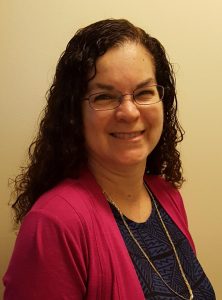
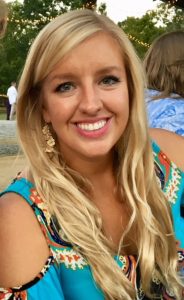
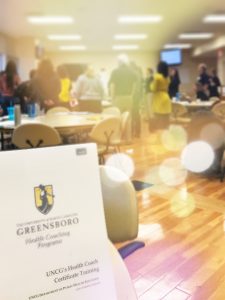
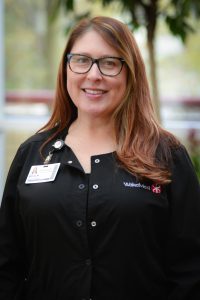
 Crystal is an Academic Professional Assistant Professor in the Department of Public Health Education at UNCG. She joined the department in August 2016. Currently, she teaches six classes in the department, focusing on program planning and evaluation,community engagement and fieldwork. This emphasis comes from Crystal’s expertise in community recruitment, which she developed while working for Durham County. She applies this expertise in community recruitment to academia when recruiting students to the Public Health Program and even more specifically, the Lloyd International Honors College, for which she is the liaison.
Crystal is an Academic Professional Assistant Professor in the Department of Public Health Education at UNCG. She joined the department in August 2016. Currently, she teaches six classes in the department, focusing on program planning and evaluation,community engagement and fieldwork. This emphasis comes from Crystal’s expertise in community recruitment, which she developed while working for Durham County. She applies this expertise in community recruitment to academia when recruiting students to the Public Health Program and even more specifically, the Lloyd International Honors College, for which she is the liaison. 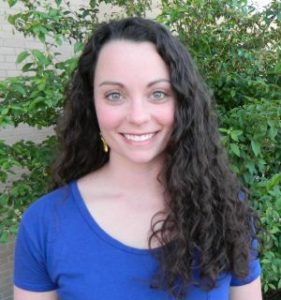 w focuses on actively and nonjudgmentally listening. While her work doesn’t always include direct coaching, she finds herself using those skills regularly. Her work at HealthyUNCG includes facilitating focus groups, interviewing employees, performing fitness assessments, and presenting on healthy habits. In each of these duties, she finds that communication and authentic presence are key components for success.
w focuses on actively and nonjudgmentally listening. While her work doesn’t always include direct coaching, she finds herself using those skills regularly. Her work at HealthyUNCG includes facilitating focus groups, interviewing employees, performing fitness assessments, and presenting on healthy habits. In each of these duties, she finds that communication and authentic presence are key components for success.